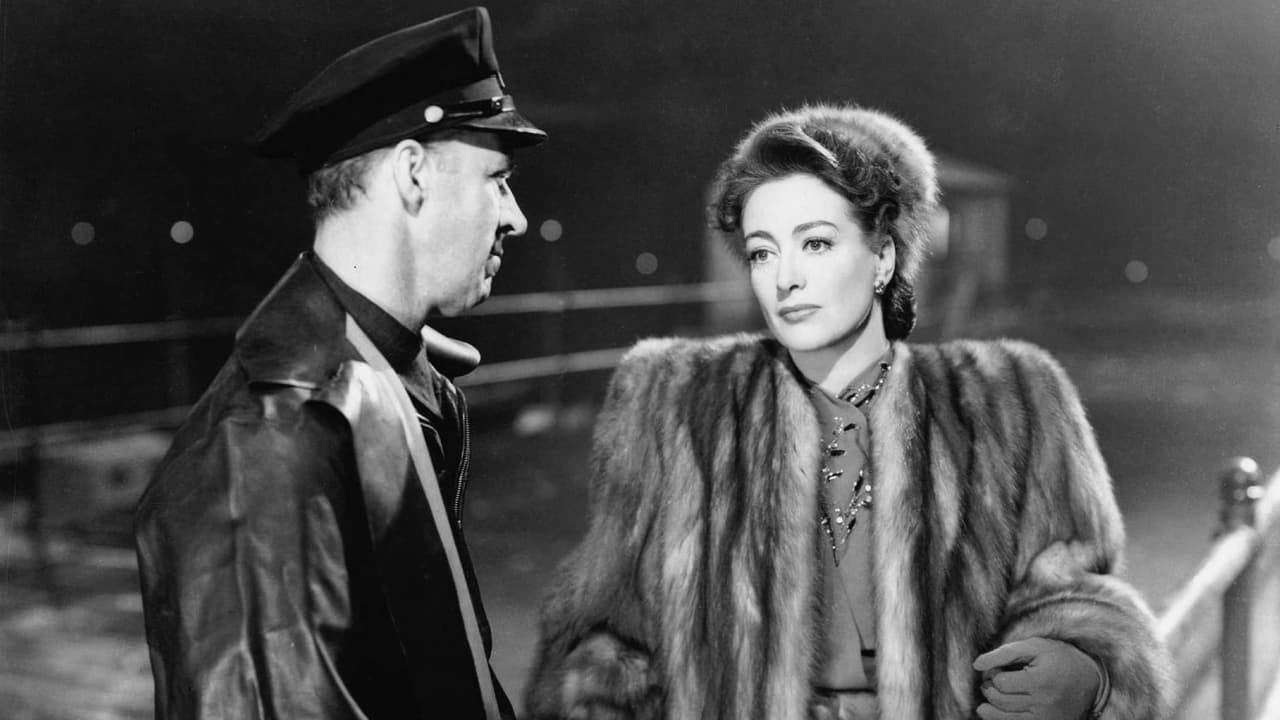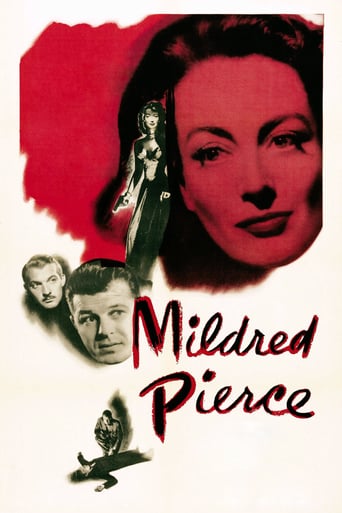

Milderd Pierce is the best movie in the 1940's for me after Milderd Pierce is Now Voyger.The Movie is about a Woman named Milderd pierce is telling stuff about here life after her husband got shot.Her a has some rise and falls and also a death!!.Th Acting was amazing.Also Joan Crawford was in the movie so this movie differently be good so just watch the movie!!Sincerely,Oliver Wady
... View Morethis is a movie talks about family relationship. It pick up a boring topic to describe. It is the love from a mother to her daughter. I think the love from mother to daughter is unfair but grateful. Mother tries her best to give her daughter everything she wants in the world. But the daughter thinks she deserved all of those beautiful gifts and also she deserved this love from her mother. The daughter doesn't know to say thank you to her mother. She doesn't know to switch thinking. If she knows to thinking on her mother's position, she won't do those things to hurt her mother's heart. However, after the daughter done those things to break her mother's heart, mother still loves her and try to do everything to cover her daughter's crime.
... View MoreMildred Pierce is a film about a single mother who is by all means fight against poverty and in the end her wins. However, the fight with the ungrateful and mentally ill daughter can not be measured not with wealth nor with prosperity. Family suffering of main protagonist is greater than the mysterious murders with which the film begins. One extremely strong and complex female characters disrupted selfish and spoiled daughter.The relationship between mothers and daughters is it definitely the biggest problem in the film. I am convinced that the mother should often hold educational lessons to her older daughter. In this case, the struggle for survival woman away from loved one. Death of younger daughter is shown too transient to be convincing. Life goes on. Ruin this little life that is left.The film is filled with vague premises that lead to quite a clear conclusion. The older daughter is a definite cause of the problem and the story ends. Love of parents towards children is strong, but I think that love is not solely responsible for making good person.Joan Crawford as Mildred Pierce Beragon is a strong and capable woman. How much is actually smart!? Blind love for a living child is illogical. Today, similar examples are often present. Almost always lead to a certain extreme. She wants her kid to be happy. Luckily that never existed has its price.Ann Blyth as Veda Pierce Forrester is pretty amazing. The actress who is in every sense unconvincing makes a good impression.Mildred Pierce is a film that lacks style. Emotions are strong, but a little impersonal. Description of characters, except the main female character, is not impressive. This movie I'd never led in the context of the situation of women in society.
... View MoreMildred pierce is a great film because of how much different it is. The focus is on a woman who is picking her self up after divorce. I personally enjoy any story about someone who works hard and chases what they want. The story stays interesting by flashing back and forth between present day discussing a murder and her life before and what led up to the crime. The editor did a great job of making this these time changes very smooth and apparent. Also since they don't show the murderer it keeps you in suspense especially since there is a happy story but you know in the back of your mind there is going to be a murder. The only bad part about this movie was the daughter. She single handedly ruined every scene she was in the girl was a bitch. I was glad to see she was a dancer. Felt like justice.
... View More